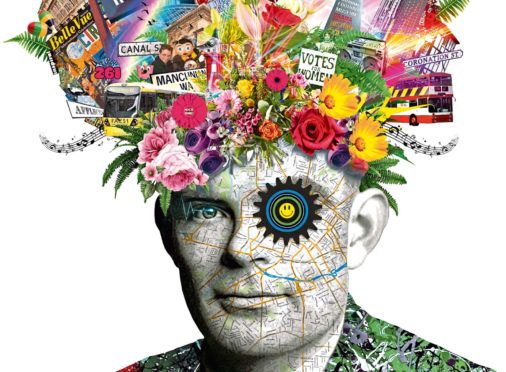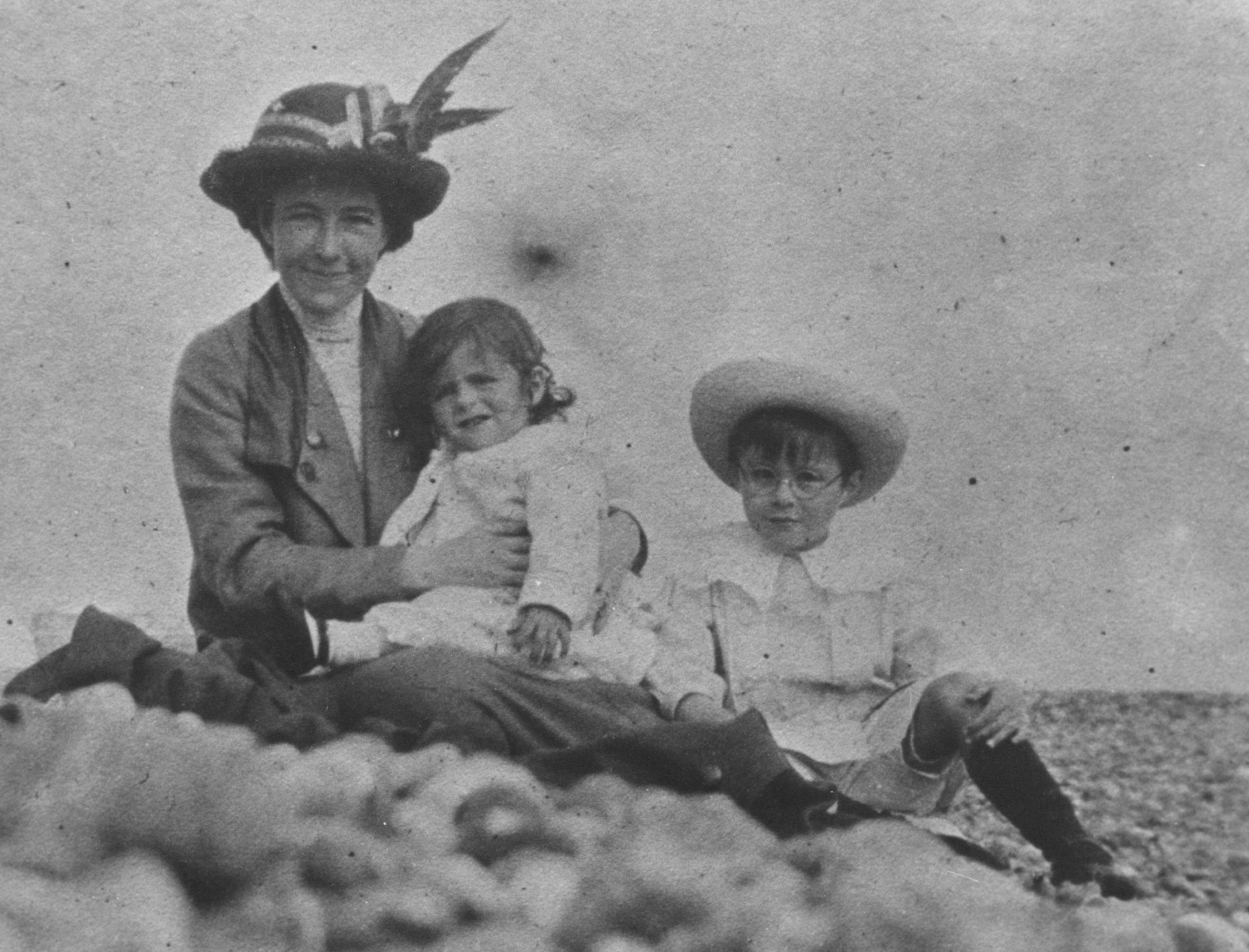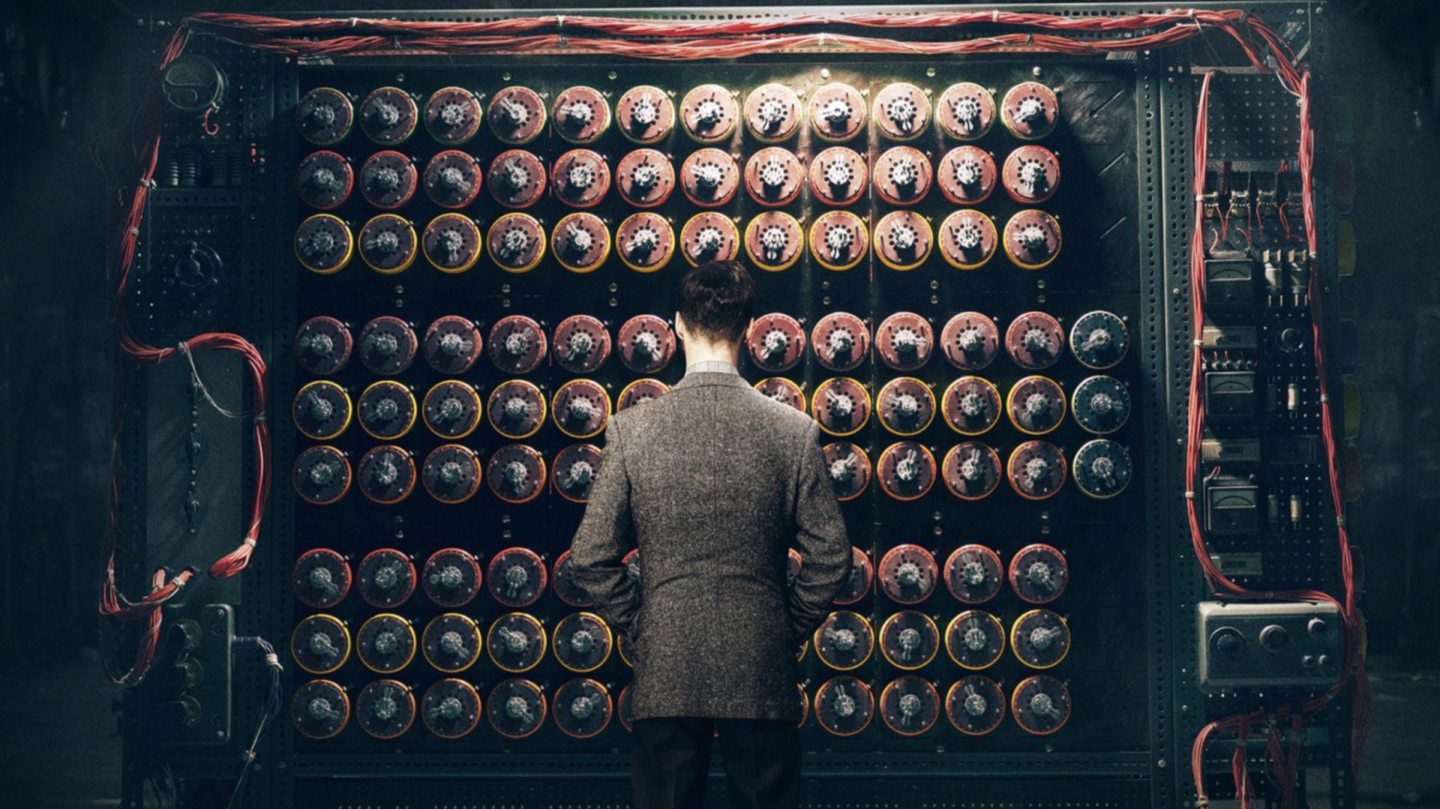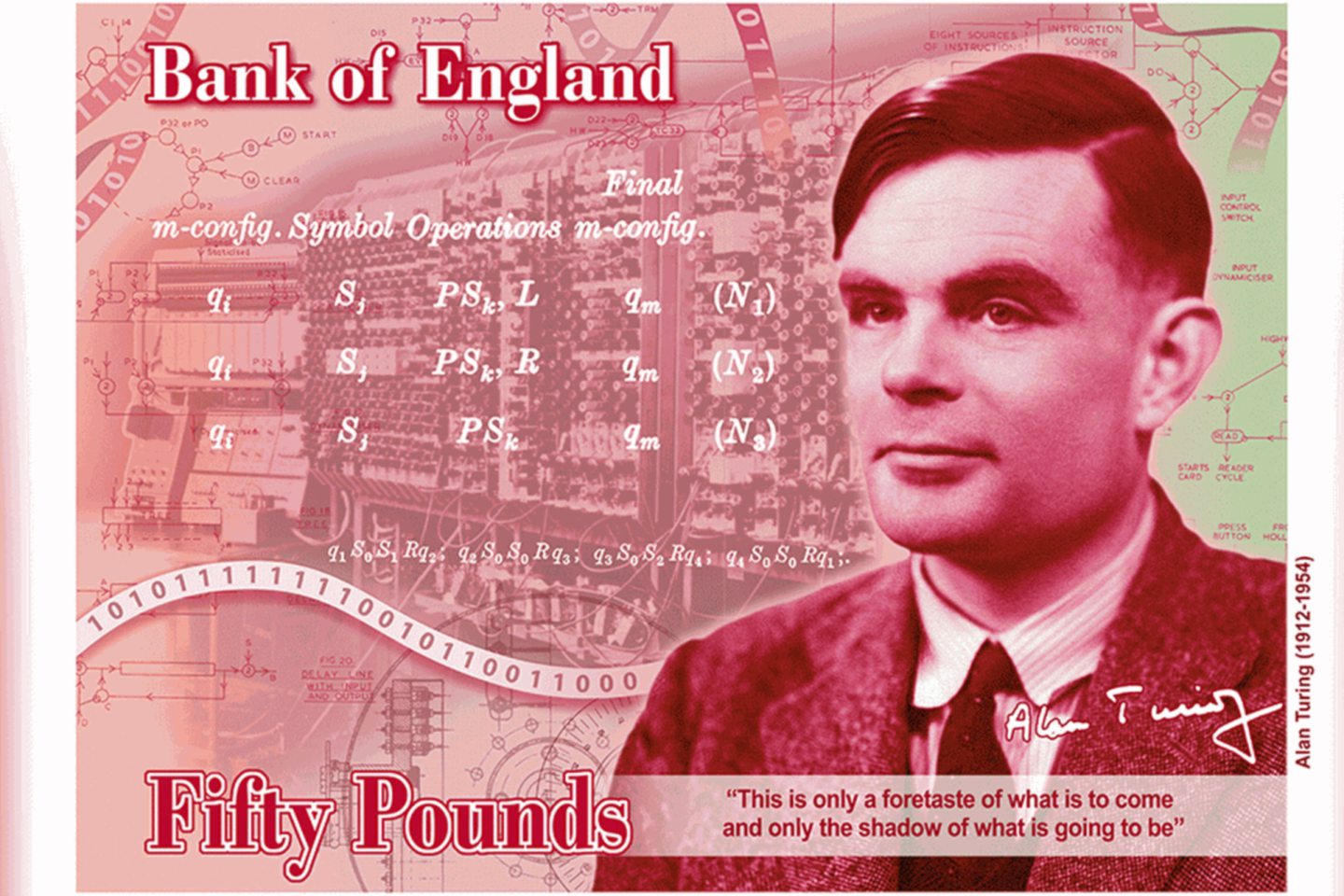
He has become an icon, acclaimed as a genius mathematician, a code-breaking marvel, the father of modern computing and a gay man hounded to his death in harsher, less tolerant times.
Unfortunately, according to Alan Turing’s nephew, much of what we know of his life is more myth than reality. The truth, however, is even more fascinating.
Dermot Turing believes the popular view of his uncle and his codebreaking Bletchley Park colleagues – cemented in novels and films, including The Imitation Game, starring Benedict Cumberbatch – is fine as far as it goes but that is not nearly far enough.
He says Turing, who will soon become the face on the Bank of England’s £50 note, was a complex man with a legacy that is both more complicated and more important than has been charted so far.
He said: “A lot that he did is misunderstood. The standard two-line biography is about ‘the amazing codebreaker guy who broke the impossible Enigma code and shortened the Second World War, saving millions of lives, and then was hounded by the state to take his own life because he was a gay man’. While there are points of factual correctness in that, most of it is wrong.”
He believes this is because his uncle – who was given a posthumous apology by Gordon Brown in 2009 and a royal pardon in 2013 – has been “appropriated by a sort of collective consciousness”.
“We have this idea that a single individual was responsible for the work on Enigma, which is absolute rubbish. He had serious help from the Polish codebreakers and he dropped out of codebreaking by about 1942. He personally didn’t save millions of lives in the war although Bletchley Park and all its work, not just on Enigma, may have done so.”
And, while his uncle did fall foul of the law outlawing homosexuality, he says colleagues defended him. Turing, who accepted probation on the condition of having hormonal treatment, in effect a chemical castration, was neither jailed nor sacked. His nephew said: “That is not the reason he took his own life. That was all in the past by the time he died.”
He has written a soon-to-be-published book, Alan Turing: A Relative Story, based in part on letters dating from 1949 to 1954, uncovered at Manchester University where Turing was deputy head of the computer laboratory.
The author, who is the 12th Baronet of Foveran, Aberdeenshire, believes the book traces the intellectual development of the man who more than 70 years ago first mooted the notion of artificial intelligence.
From Turing’s family’s roots – in Scotland and India – to codebreaking at Bletchley Park and beyond, the book uncovers the man behind the myth and reveals little-known facts: his mixed-race heritage, the importance of women in his career, and his courage, humour and defiance in the face of homophobia. The revelations, says Dermot, should replace the “sugar-coated nostalgic” persona of Turing with an accurate and more relevant view.
He wants to set an exciting agenda for his uncle’s legacy – one which can open doors to women, people of colour and students from ethnic minorities in the world of science, technology, engineering and maths – and push for the removal of anti-gay laws worldwide.
From his home in St Albans, Dermot told The Sunday Post: “Alan Turing’s correspondence file is in the Manchester University archives and I have mined it quite heavily. It does not have any marvellous great new theorems, but what it does do is give much more colour of his day-to-day life and what was going on his personal life, it gives more insight into him as a human being.
“We have assimilated Alan Turing’s intellect in a public sense of pride. We think, ‘weren’t we clever to win the Second World War by the force of our own brains’, and then we say, ‘look how far we have come since the early-1950s, now we don’t treat gay people like they are pariahs’.
“Alan Turing himself would be disgusted to be appropriated in this kind of way. He would not have denied that what he did at Bletchley Park was significant, but he would have denied that it had the significance people want to give it.
“He would have been absolutely appalled at the idea he is somehow being recruited as a figure to have solved problems about the treatment of gay people. We have conflated this stuff; packaged it up and made it more soap opera and that’s just not right.”
Turing’s roots shed light on the man. His nephew revealed: “The family came from Foveran. Its estates were mortgaged to raise money for the King Charles I, and were lost. The Turings became Church of Scotland ministers and merchants around the world. Our ancestor William Turing went to India and set up home with a native girl.
“They had a son, John William Turing, who was mixed race, who worked in the Honourable East India Company. But the Cornwallis Reforms involved in the transition of India from trading partner to a colony required that anybody with a brown skin could not work in anything other than a menial role. John William was sacked. It’s shocking.”
Alan Turing’s father was also in the Indian Civil Service. His brother John – Dermot’s father – was born there, and later became a solicitor. But Alan followed a different path.
The writer said: “You have to ask where that scientific spirit of inquiry came from. Alan’s mother – my grandmother Ethel Stoney – had a family littered with scientists of both genders.”
Two of her female cousins were Edith and Florence Stoney, pioneers of the X-ray and other electromedical technologies. He said: “They were physicists who carved out science careers before the First World War as radiologists. The whole science influence came in from the women’s side of the family.
“My uncle’s working relationships with women weren’t any different from his working relationships with men. There were plenty of women codebreakers at Bletchley Park, contrary to myth. At Manchester University, there were quite a few women in his laboratory and then there were those with whom he had professional correspondence.
“There is interesting correspondence with the Canadian computer scientist Beatrice Worsley. She is probably the world’s first person with a computer science PhD. Alan Turing was advising her on it.
“You got the sense that who he was prepared to give the time of day to had nothing to do with their gender but had a lot to do with what they were willing to offer, from an intellectual or interest perspective.”
Despite his outstanding career, Turing was 41 when he took his own life on June 7, 1954, by eating an apple containing cyanide. He left no note but his nephew does not believe his conviction or the hormone treatment to be the cause. He points out the conviction ended in 1952 and the treatment the following year. His research found no physiological evidence that the treatment had any an impact on his uncle’s mental health.
Dermot added: “I even struggle with the psychological effect, because he was quite defiant about the whole thing and had a good sense of humour about it.
“I am reasonably sure Alan Turing was going to leave the world on his own terms at the time of his own choosing. What decided him that that was the time to do it? I don’t know. My guess based on some documentary material is that there was boyfriend trouble.”
Although he was pleased by Gordon Brown’s apology on behalf of the nation, Dermot added: “Alan Turing is falsely cast as a victim. Is his memory honoured by apologies, pardons and laws? Let’s, instead, put pressure on Commonwealth and other nations to remove anti-gay laws.”
He also wants to see the Policing and Crime Act 2017 that grants posthumous pardons to gay people convicted on mid-century “gross indecency” charges extended to include those who are still alive.
The writer believes his uncle would approve of his bid to set records straight and steer a new course: “The reason I am telling the stories about John William Turing and Edith and Florence Stoney is that they point the light to what Alan Turing’s legacy could and should be.
“That means we can get away from this sugar-coated nostalgia and focus on a real agenda for the 21st Century: to enable girls and kids from BAME groups to thrive in STEM subjects because they are under-represented and that is not right.”
Reflections Of Alan Turing: A Relative Story, The History Press

Enjoy the convenience of having The Sunday Post delivered as a digital ePaper straight to your smartphone, tablet or computer.
Subscribe for only £5.49 a month and enjoy all the benefits of the printed paper as a digital replica.
Subscribe © SYSTEM
© SYSTEM © SYSTEM
© SYSTEM © SYSTEM
© SYSTEM